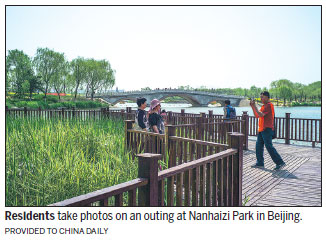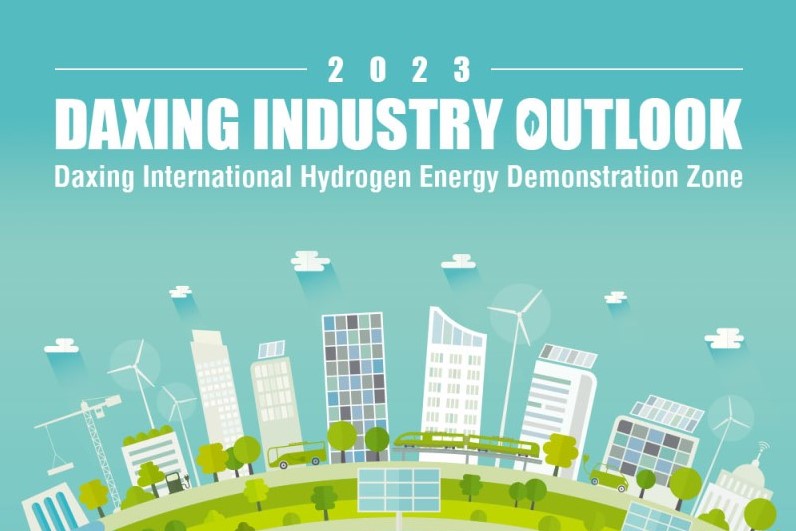Daxing district breathes new life into Beijing's largest wetland park

Daxing district in the southern part of Beijing has become a livable industrialized area with a friendly environment, thanks to the city's efforts in environmental protection over the past few years.
Nanhaizi Park, located in the district's Yinghai township, is the capital's largest wetland park with total area nearly four times that of the Summer Palace. It has been described as an emerald to the south of Beijing's central axis.
From the Liao Dynasty (916-1125) to the Qing Dynasty (1644-1911), the area around the park, about 20,000 hectares, had been wetland and was used as the royal chase. Milu deer, one of the rarest animals in China, used to live there.
In more recent decades, the Nanhaizi wetland dried out and became used as an illegal landfill, seriously damaging the soil, air and groundwater.
In 2009, the city government released a plan to restore Nanhaizi and reconstruct its wetland.
Construction of the first phase of the wetland park got under way in January 2010 and was finished in September that year, complete with 16 ecological and cultural landscapes. Construction work on the second phase was completed last year.
Horned grebes, a second-class protected bird, were spotted by bird-watchers perching in the park this summer. The rare species is picky about its habitats, according to experts, requiring clean air, vast wetland, fresh fish and shrimp.
Heading south from Nanhaizi Park, outside of Beijing's sixth ring road, lies another wetland park built around the Yongxing River.
Polluted by sewage illegally discharged from nearby furniture, lighting and nail factories, Yongxing River, whose waters had almost run black, had been known locally as the "stinking river" just a few years ago.
But the situation changed in 2016, when the offending factories were closed down. As a result, the river channel was broadened and plants and trees were planted along its banks.
The river has now been revitalized and the wetland park is home to several orchards and vegetable gardens to develop pollution-free agriculture.
In addition to offering picturesque landscapes and high-quality life, Daxing is also a place where entrepreneurs can reach for their business dreams.
The Beijing Economic-Technological Development Area, also known as Beijing ETown, where Nanhaizi Park is situated, is a major economic engine in the city, fueling growth with its combination of high technology and industrialization.
The area has attracted more than 20,000 companies, making products ranging from electronics such as cellphones and television screens to medicine, textiles and even ink for the nation's bank notes.
Some 80 Fortune Global 500 enterprises such as Mercedes-Benz, ABB, Bayer and JD have established over 120 projects in the ETown, with total investment of nearly $100 billion.
They mainly focus on four industries - electronic information, equipment manufacturing, bioengineering and medicine, and automobile and transportation facilities.
Situated on the west and east sides of the Yongxing park is the Daxing Biological Medicine Base, which will cover a total area of 28 square kilometers when completed.
The industrial base now boasts more than 1,500 companies involved in such fields as medicine, medical appliances, pharmaceutical licensing and healthcare services.
To appeal to the needs of nearby residents, an old steel workshop was transformed into a 10,000-square-meter entertainment and sports center in the industrial base in July 2017.
There are facilities available for 12 sports including basketball, kickboxing, indoor skiing, trampolining and rock climbing.
Construction work on the second phase is currently progressing on schedule. Upcoming developments will include swimming and diving facilities and a theater for children.

